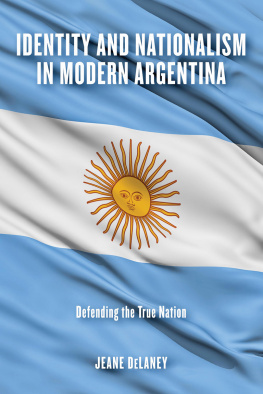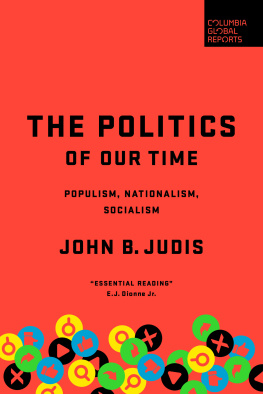Imagined Communities

Imagined Communities
Reflections on the Origin and
Spread of Nationalism
BENEDICT ANDERSON
Revised Edition

First published by Verso 1983
This edition published by Verso 2016, 2006
Benedict Anderson, 1983, 1991, 2006, 2016
All rights reserved
The moral rights of the author have been asserted
1 3 5 7 9 10 8 6 4 2
Verso
UK: 6 Meard Street, London W1F 0EG
USA: 20 Jay Street, Suite 1010, New York, NY 11201
www.versobooks.com
Verso is the imprint of New Left Books
ISBN13: 9781784786755
ISBN13: 9781844674848 (US EBK)
ISBN13: 9781781683590 (UK EBK)
British Library Cataloguing in Publication Data
A catalogue record for this book is available from the British Library
Library of Congress Cataloging-in-Publication Data
A catalog record for this book is available from the Library of Congress
Typeset by Hewer Text UK Ltd, Edinburgh
Printed in the US by Maple Press
For Mamma and Tantiette
in love and gratitude

Contents


Acknowledgments

As will be apparent to the reader, my thinking about nationalism has been deeply affected by the writings of Erich Auerbach, Walter Benjamin and Victor Turner. In preparing the book itself, I have benefitted enormously from the criticism and advice of my brother Perry Anderson, Anthony Barnett, and Steve Heder. J. A. Ballard, Mohamed Chambas, Peter Katzenstein, the late Rex Mortimer, Francis Mulhern, Tom Nairn, Shiraishi Takashi, Jim Siegel, Laura Summers, and Esta Ungar also gave me invaluable help in different ways. Naturally, none of these friendly critics should be held in any way accountable for the texts deficiencies, which are wholly my responsibility. I should perhaps add that I am by training and profession a specialist on Southeast Asia. This admission may help to explain some of the books biases and choices of examples, as well as to deflate its would-be-global pretensions.
He regards it as his task to brush history against the grain.
Walter Benjamin, Illuminations
Thus from a Mixture of all kinds began,
That Hetrogeneous Thing, An Englishman:
In eager Rapes, and furious Lust begot,
Betwixt a Painted Britton and a Scot:
Whose gendring Offspring quickly learnt to bow,
And yoke their Heifers to the Roman Plough:
From whence a Mongrel half-bred Race there came,
With neither Name nor Nation, Speech or Fame.
In whose hot Veins now Mixtures quickly ran,
Infusd betwixt a Saxon and a Dane.
While their Rank Daughters, to their Parents just,
Receivd all Nations with Promiscuous Lust.
This Nauseous Brood directly did contain
The well-extracted Blood of Englishmen...
From Daniel Defoe, The True-Born Englishman

Preface to the Second Edition

Who would have thought that the storm blows harder the farther it leaves Paradise behind?
The armed conflicts of 197879 in Indochina, which provided the immediate occasion for the original text of Imagined Communities, seem already, a mere twelve years later, to belong to another era. Then I was haunted by the prospect of further full-scale wars between the socialist states. Now half these states have joined the debris at the Angels feet, and the rest are fearful of soon following them. The wars that the survivors face are civil wars. The likelihood is strong that by the opening of the new millennium little will remain of the Union of Soviet Socialist Republics except... republics.
Should all this have somehow been foreseen? In 1983 I wrote that the Soviet Union was as much the legatee of the prenational dynastic states of the nineteenth century as the precursor of a twenty-first century internationalist order. But, having traced the nationalist explosions that destroyed the vast polyglot and polyethnic realms which were ruled from Vienna, London, Constantinople, Paris and Madrid, I could not see that the train was laid at least as far as Moscow. It is melancholy consolation to observe that history seems to be bearing out the logic of Imagined Communities better than its author managed to do.
To adapt Imagined Communities to the demands of these vast changes in the world and in the text is a task beyond my present means. It seemed better, therefore, to leave it largely as an unrestored period piece, with its own characteristic style, silhouette, and mood. Two things give me comfort. On the one hand, the full final outcome of developments in the old socialist world remain shrouded in the obscurity ahead. On the other hand, the idiosyncratic method and preoccupations of Imagined Communities seem to me still on the margins of the newer scholarship on nationalism in that sense, at least, not fully superseded.
What I have tried to do, in the present edition, is simply to correct errors of fact, conception, and interpretation which I should have avoided in preparing the original version. These corrections in the spirit of 1983, as it were involve some alterations of the first edition, as well as two new chapters, which basically have the character of discrete appendices.
In the main text, I discovered two serious errors of translation, at least one unfulfilled promise, and one misleading emphasis. Unable to read Spanish in 1983, I thoughtlessly relied on Leon Ma. Guerreros English translation of Jos Rizals Noli Me Tangere, although earlier translations were available. It was only in 1990 that I discovered how fascinatingly corrupt Guerreros version was. For a long, important quotation from Otto Bauers Die Nationalittenfrage und die Sozialdemokratie I lazily relied on Oscar Jszis translation. More recent consultation of the German original has shown me how far Jszis political predilections tinted his citations. In at least two passages I had faithlessly promised to explain why Brazilian nationalism developed so late and so idiosyncratically by comparison with those of other Latin American countries. The present text attempts to fulfil the broken pledge.
It had been part of my original plan to stress the New World origins of nationalism. My feeling had been that an unselfconscious provincialism had long skewed and distorted theorizing on the subject. European scholars, accustomed to the conceit that everything important in the modern world originated in Europe, too easily took second generation ethnolinguistic nationalisms (Hungarian, Czech, Greek, Polish, etc.) as the starting point in their modelling, no matter whether they were for or against nationalism. I was startled to discover, in many of the notices of
Next page










